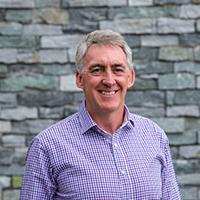Challenging the current treatment considerations

Hi everyone,
Since posting my blog on Cancer in December 2018 I have received an avalanche of feedback. In that article I discussed the hallmarks of cancer, the two scientific theories underlying cancer cell formation and 9 key cancer prevention strategies.
The goal of this blog is to look at the practical considerations needed by those diagnosed with cancer and who are about to, or are receiving treatment. When you have been diagnosed with cancer it can be overwhelming. The whole situation is often weighed down by fear, helplessness, fatigue and confusion, all of which can be amplified by not truly understanding the disease. The reality is that the more you know about a topic, the better choices you will make and the greater sense of control you will have of your situation. Hopefully, the following piece will help educate and empower those challenged by cancer.
At this point, it is important to say that one area you can be confident about is that your oncologist is an expert at killing cancer cells. Given that cancer cells are immortal, you need an expert in your corner that knows how to destroy them. Your oncologist’s tools of trade are:
- Surgery
- Chemotherapy
- Radiation
- Biologic Response Modifiers (Immune enhancers)
These make up the ‘government sponsored’ cancer treatment options in Australia. They are backed by critical research processes that involve enormous time, effort and money and are funded by your tax dollar. For those who are not willing or able to dig any deeper, these, aforementioned, four strategies remain the only available options for cancer treatment.
However, although killing cancer cells is an integral part of cancer treatment, it does not constitute the full picture. As well as being immortal and replicating rapidly, it is important to note that, cancer cells thrive in, and create, a cellular environment that is markedly favourable to their existence. Furthermore, cancer cells don’t just occur randomly without initiation. They are triggered by known risk factors. With these facts in mind, the goal for truly effective cancer treatment must consider:
- RISK FACTOR MODERATION.
- REDUCTION OF CANCER DRIVERS.
- CREATION OF A CELLULAR ENVIRONMENT UNFAVOURABLE TO CANCER CELLS.
- DESTRUCTION OF CANCER CELLS.
For if we only focus on killing cancer cells without the considerations of the other four factors – how can we be confident that new cancer cells will not replace those that have been killed? And how can we be sure that the residual environment from cancer cell destruction will not make it more favourable for surviving or new cancer cells to prosper?
Thankfully, there are strategies that can help remedy this conundrum. Firstly, it is important to discover and measure the areas of deviation that may be providing negative impact. This can be achieved via subjective testing, (observing signs and symptoms), and objective testing, (completing strategic tests). Discovering your weak-spots will allow you to strategically address them. The following list shows the key strategies required to tackle the key hallmarks of cancer.
- Decrease inflammation.
- Increase immune surveillance.
- Decrease oxidative stress.
- Increase detoxification.
- Decrease glycation.
- Decrease blood viscosity and improve vascular integrity.
- Support healthy methylation and promote genetic stability.
- Support healthy mitochondrial function.
- Decrease stress chemistry.
Although the above list may seem extensive and daunting, I have found that it is not that difficult to ascertain an individual’s major area(s) of deviation. This can be accomplished by initially using a subjective questionnaire to identify the focal areas and then utilizing objective testing to obtain the numerical detail. In summary, find out where something is and then measuring it provides a reliable ongoing scoreboard.
My observation is that not all areas are in play with an individual and more particularly, some areas are clearly more out of balance than others. When these deviated areas are prioritised and addressed, it is obvious how much better the patient feels and how much more effective their treatment outcomes are. Interestingly, the correction of these issues does not always require medication. In fact, focusing on lifestyle advice such as dietary change, relaxation techniques, breathing drills and specific exercise strategies can often be more powerful than a prescribed remedy.
When killing cancer cells is the sole focus, the collateral damage can be uncomfortable side effects. These signs and symptoms are well documented during the clinical trials associated with the treatment and need to be addressed. When knowledge of these expected side effects is combined with an understanding of the patients current health status it provides a powerful picture. This understanding can sometimes lead to their prevention and almost always lead to their reduction. As mentioned, maintaining a patient’s health status whilst treating their disease should be a non-negotiable part of cancer treatment. Given that many of the side effects of cancer treatment are favourable to cancer cells, preventative intervention can be fundamental to cancer survival.
You may have noticed that I have not mentioned the natural medicines that can have a cancer killing impact. The reason for this is two-fold. Firstly, the science around direct cancer killing natural medicines is thin on the ground. There may be many reasons for this, but the reality is that the financial investment alone needed to drive the multiple clinical trials necessary to bring them into the mainstream is currently not forthcoming. Secondly, the stress that is created by a cancer patient’s key influencers when they decide to take a totally natural medicine approach can be overwhelming. I have witnessed patients come to see me with this clear intent, only to buckle in their resolve due to social pressures and end up sick with anxiety. Being in this state has no place in a situation that is potentially life threatening. It requires a confident and informed patient surrounded be a supportive team if an exclusively natural approach is pursued.
Furthermore, the expensive measurement tools, valuable support services and hospital access that is important for an easier treatment passage, is really only available to those in the medical system. For these reasons, I believe that maintaining connection with the medical system is a vital part of cancer treatment.
With that said, it needs to be noted that the gold standard of medicine – the double blind crossover trial has never been applied to cancer treatment. This is where some patients are treated and others are not, with no-one knowing which group they are in and the researchers not knowing until the end of the study which patients received what. It allows an unbiased view of treatment outcomes and ensures that the risks and benefits of a therapy are clearly noted. For many reasons this approach is not considered ethical when it comes to cancer. So at this point, according to the lofty standards of science, we really don’t know whether orthodox treatment, natural medicine, a combination of both or no treatment is the best strategy once a patient is diagnosed. What we do know is that nothing changes if nothing changes and that if you keep doing what you’ve always done you’ll keep getting what you’ve always got!
So what needs to change when it comes to effectively dealing with cancer? Is it increasing the use of chemicals, radiation or surgery? Or is it incorporating habit and lifestyle improvement or the addition of specific natural medicines?
The reality is that we haven’t tested these things against each other and so we don’t definitively know.
What is clear is that all of the aforementioned strategies have been shown to have merit. Not all of them are sponsored by our health system and therefore, not all of them are commonly used. Those that are continue to be documented as a part of a global clinical trial. The fact is that all cancer patients’ results are helping to increase understanding and build more effective future treatment protocols. The reality is that this information does not factor in the role of healthy lifestyle habits and natural medicine and therefore, it is easy for medical professionals to disregard their potential.
As mentioned in my previous cancer blog, there has been published data on the outcomes of incorporating healthy lifestyle and natural medicine with orthodox treatment. The results of a long term Californian study showed that the 5-year survival rate for the group treated solely by orthodox medicine was only 7% whilst the combined group, (orthodox and natural medicine), had an 82% survival rate. Even though the results appear astounding, they seem to have been disregarded and have not spawned multiple follow-up studies. So what’s going on? Some would say that there is a Big Pharma conspiracy? Whilst others claim that it is just too difficult to get patients to change their habits? Whatever the answer, it seems that while we are waiting for more evidence, it seems reasonable that under professional guidance, we should be applying appropriate natural medicine strategies.
When it comes to natural medicines that target cancer cells, there are some exciting tools. The published data shows that they are primarily involved in improving the immune system’s attack on cancer and include beta glucans, salvestrols and rice bran arabinoxylan. However, investing in these alone misses the point, as cancer is a multifactorial disease that shows up differently in each individual. With this in mind, I need to reiterate that a truly comprehensive cancer treatment strategy should always aim to eliminate appropriate risk factors, improve the general psycho-physiological health of the patient, create healthy lifestyle habits and utilize the most suitable “cancer killing” strategy. Disregarding any of these elements will diminish the impact of cancer treatment. For this reason, it is disappointing that despite the millions of dollars that are currently being poured into cancer research it fails to take this broad focus. This ultimately leads to tax funded cancer treatment protocols that, although well meaning, are not as comprehensive as they need to be. For the majority of patients that enter cancer treatment they do so with the belief that they will receive the best treatment available. However, although this may be the case with respect to the cancer killing aspect, it is not the case for the three other important characteristics required for ultimate treatment success. As a result of this compromised approach, a cancer patient’s life may be aggravated, shortened or even lost.
Please know that this blog has not been written to be disrespectful to the medical profession. On the whole, Doctors, Nurses, Surgeons and Specialists truly care about their patients and apply their skills and knowledge with professional excellence. Unfortunately with cancer, sometimes they may do so without factoring in all of the applicable strategies for success. Given the increasing incidence of cancer, surely it’s reasonable to challenge the current processes and improve them. This Naturopath is passionate about doing so and hopes, that in the not too distant future, the medical system will follow suit. For the sake of those that don’t visit a Naturopath, let’s trust that this happens quickly!
SHARE THIS ARTICLE
